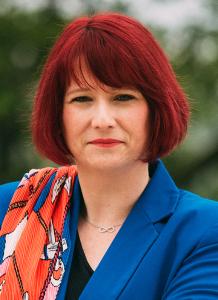PolitiKAS Debates: The Third Way as a Solution for Freelancers - Auslandsbüro Serbien / Montenegro
Online-Seminar
Details
PolitiKAS Debates: The Third Way as a Solution for Freelancers
The debate on Freelance Entrepreneurship – Experiences from Serbia and the Netherlands took place on Tuesday, 6th of April.
There is a lot of research putting Serbia on top of the list of countries with the highest number of freelance workers per capita. The working status of freelancers has become one of the main topics in Serbia in October 2020 when forced collection of due taxes and social security contributions for the last 5 years was announced by the Tax Administration and the Ministry of Finance of the Republic of Serbia. The freelancers and workers on digital platforms are still discussing their work status and their taxes and social contributions with the state authorities.
Branka Anđelković, co-founder and program director of the Center for Public Policies Research and Luc van Dijk, professor of applied sciences in marketing and staff member of the Eduardo Frei Foundation in the Netherlands shared their knowledge and experiences with digital work. The debate was moderated by Goran Radlovački, assistant on projects dealing with the improvement of employability in the Belgrade Open School.
The aim of this debate was to compare the characteristics of freelance entrepreneurship in the Netherlands and in Serbia and to talk about how this type of work can be best regulated and organized in Serbia.
What are the Characteristics of Freelance Entrepreneurship and who are the Freelances in Serbia and the Netherlands Today?
“Freelance work includes the work on digital platforms for employers who are located abroad”, Branka Anđelković said. She pointed out that “the labor law in Serbia does not recognize freelancers as a profession. There are 70,000 to 100,000 freelancers in Serbia. This number makes Serbia one of the countries with the highest number of freelancers at the regional and European level and when it comes to the global average”.
Luc van Dijk spoke about the situation in the Netherlands and said that “due to the economic crisis which started in Europe and in the world ten years ago, many people have found a freelance job at the time in the Netherlands. Today there are 1,1 million self-employed persons, which means that 20% of all employees are self-employed persons or freelancers. It is very easy to become self-employed in the Netherlands and the country provides many tax reliefs for self-employed persons or freelancers”, van Dijk said.
Is the Freelance Work a Trend or a New Norm? Are we Going to be Working More for Foreign or Domestic Employers on Digital Platforms?
All speakers agreed that we are currently moving towards making this type of work the norm. The COVID-19 pandemic has accelerated the trend of labor digitalization. “This crisis has shown us that people are not dependent on the time and place of work anymore”, van Dijk pointed out.
When it comes to untypical forms of labor, although there are huge numbers of freelance workers in both countries “these jobs are in Serbia not online jobs but seasonal agricultural jobs, which means that they don’t include very sophisticated work. That means that the percentage of freelance workers is similar as in European countries but the structure of that work is very much different than in European countries”, Anđelković said.
What Comes Next? What is the Best Model for Serbia When it Comes to Work in the Digital Format?
Speaking about potential solutions for the situation of freelancers in Serbia, Branka Anđelković said that the problem lies in the fact that the first step was made in the area of tax policy when first the status of freelancers should have been regulated. “It cannot be expected from people to pay their social security contributions for the last five years without getting anything for that money. That is why it was necessary to first regulate their work status and then to take a look at the whole tax policy and the definition of untypical forms of labor and to determine which solution would be the most suitable for each of those forms”, Branka Anđelković added.
Branka Anđelković went on to suggest that “it would be best if we would take the so called third path and define the category ‘independent worker’ which exists in the legislations of some European countries. An independent worker or a self-employed person is somewhere in between an entrepreneur and a worker in a company, it is a person with only one employer. In this case, that would apply to the online workers in Serbia, but they often don’t have only one employer. They are using the digital platforms as an intermediary and their employers are various”, Branka Anđelković said.
The European Commissioner for Jobs and Social Rights Nicolas Schmit initiated the discussion between the social partners about the future of the work on digital platforms. This has been a hot topic for a couple of years now and we hope that it will be dealt with in a serious and responsible way. It is in the interest of the Republic of Serbia to harmonize its policy in this area with the European standards and also to adjust its national tax policy and the work status of the workers on digital platforms.
The new Labor Law which has been announced for 2022 could be the best solution for the modification of current provisions which would solve the current situation for a longer period of time.




